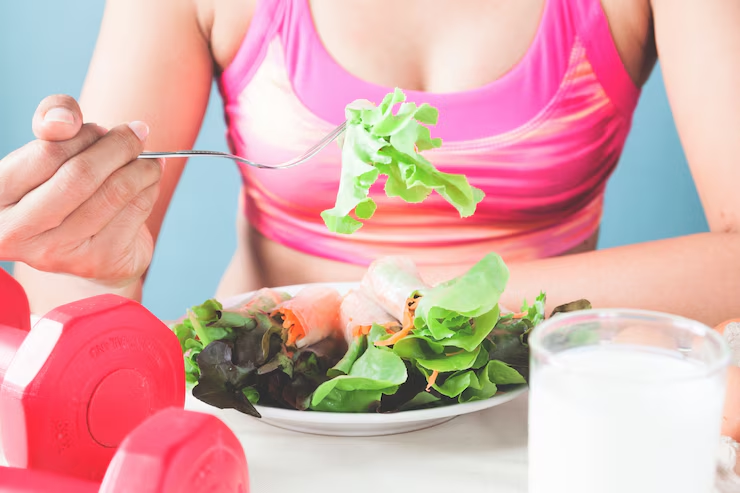Cataract surgery is a safe and effective procedure to restore vision by removing the clouded natural lens and replacing it with an artificial intraocular lens (IOL). While the procedure is minimally invasive, proper nutrition after surgery can enhance healing, reduce inflammation, and protect long-term eye health. So, see below Post Cataract Surgery Diet Menu.
Your diet after cataract surgery should focus on anti-inflammatory, antioxidant-rich, and hydration-supporting foods.
Why Diet Matters After Cataract Surgery?
- Reduce eye inflammation
- Promote tissue repair
- Prevent oxidative stress to the eyes
- Maintain blood sugar levels (especially important in diabetic patients)
- Support immune function to reduce the risk of infection
Key Nutrients to Focus On Post Cataract Surgery Diet Menu:
| Nutrient | Benefit | Best Sources |
|---|---|---|
| Vitamin C | Speeds healing, protects against oxidative stress | Oranges, kiwi, strawberries, bell peppers |
| Vitamin A & Beta-Carotene | Supports retinal health | Carrots, sweet potatoes, spinach, kale |
| Zinc | Enhances vitamin A absorption and immunity | Pumpkin seeds, chickpeas, eggs, seafood |
| Lutein & Zeaxanthin | Protects eyes from light damage | Leafy greens, corn, egg yolks |
| Omega-3 Fatty Acids | Reduces inflammation, supports tear production | Fatty fish, flaxseed, and walnuts |
| Vitamin E | Antioxidant support | Almonds, sunflower seeds, and avocado |
| Protein | Tissue repair and recovery | Eggs, lean meats, tofu, legumes |
Sample Post Cataract Surgery Diet Menu (Day-by-Day Guide)
Day 1–2: Gentle Foods with Hydration:
Focus on soft, easy-to-digest meals. Avoid hot foods that might steam the face and irritate the eyes.
What to eat In Post Cataract Surgery Diet Menu:
- Warm vegetable broth
- Oatmeal with mashed banana
- Steamed mashed potatoes or soft rice
- Soft scrambled eggs
- Herbal teas (chamomile, fennel)
- Lots of water
Day 3–7: Introduce Eye-Boosting Nutrients:
Now you can add more texture and nutrition while maintaining an anti-inflammatory focus.
Breakfast:
- Oats with flaxseed and blueberries
- Boiled egg or Greek yogurt
Lunch:
- Grilled salmon or lentil soup
- Quinoa with sautéed spinach and garlic
- Cucumber-tomato salad with olive oil
Snack:
- Orange slices or kiwi
- A handful of almonds
Dinner:
- Steamed chicken or paneer
- Sweet potato mash
- Steamed broccoli and carrots
Week 2 and Beyond: Full Nutrient-Dense Diet:
Once cleared by your ophthalmologist, resume a balanced, wholesome diet to continue supporting eye health.
- Whole grains: Brown rice, millet, oats
- Colorful fruits & veggies: Especially those rich in vitamins A, C, E
- Protein sources: Lean meats, eggs, legumes, dairy
- Healthy fats: Olive oil, nuts, seeds, avocado
- Hydration: Water, infused waters, herbal teas
Foods to Avoid In Post Cataract Surgery Diet Menu:
| Type | Examples | Why to Avoid |
|---|---|---|
| Hot or spicy foods | Curries, chilis, soups served steaming | Can irritate eyes through steam exposure |
| Processed foods | Packaged snacks, sugary cereals | Increase inflammation, lack nutrients |
| Fried & oily foods | Fast food, chips, deep-fried snacks | May delay healing, strain immune system |
| Sugary foods & drinks | Sodas, desserts | Can cause blood sugar spikes, bad for eye health |
| Alcohol | Any form | Can interfere with medications, dehydrates the body |
Post Cataract Surgery Diet Menu Tips for a Smooth Dietary Recovery:
- Avoid hot steam over your face, including from food.
- Eat meals in a clean, bright space to avoid eye strain.
- Chew slowly and stay upright during meals to avoid pressure on the head.
- Avoid caffeine for a few days if it affects your hydration or sleep.
Final Thoughts:
While cataract surgery recovery is usually quick and uncomplicated, a mindful diet can help you heal faster, protect your new vision, and reduce the risk of complications. Think of this as an opportunity to build long-term eye health through good nutrition.
Always follow your ophthalmologist’s instructions and consult a registered dietitian if you have specific health conditions (like diabetes or kidney issues).
FAQ:
Q. Can I eat immediately after cataract surgery?
A. Yes, you can usually eat once you’re fully awake and comfortable after the procedure. Start with soft, non-spicy foods and avoid anything steaming hot on the first day to prevent eye irritation.
Q. Are there foods that can help speed up healing?
A. Yes. Foods rich in vitamins A, C, E, zinc, lutein, and omega-3 fatty acids support healing and eye health. Examples include leafy greens, citrus fruits, carrots, nuts, seeds, and fatty fish.
Q. Should I avoid hot or spicy foods after surgery?
A. Yes, for the first few days. Hot or spicy foods can produce steam or irritate the sinuses and eyes, which may increase discomfort or slow healing.
Q. Is it safe to drink coffee or tea after surgery?
A. Herbal teas are fine. Regular coffee or strong tea should be consumed in moderation as they can dehydrate you. Avoid them if they increase your blood pressure or interfere with prescribed medications.
Q. Can I eat fruits and raw vegetables?
A. Yes, but it’s best to introduce raw produce gradually after the first couple of days. Soft, non-acidic fruits like bananas and cooked vegetables are ideal in the early stages.
Q. Should I take supplements like vitamin C or omega-3s?
A. If your doctor or eye specialist recommends them, yes. Otherwise, aim to get these nutrients naturally through food unless advised otherwise.
Q. Are there any foods that can cause complications or delay healing?
A. Yes. Avoid fried foods, high-sugar items, processed snacks, alcohol, and excessively salty meals, which can increase inflammation and slow recovery.
Q. How long should I follow a special diet after cataract surgery?
A. You don’t need a strict diet long-term, but focusing on eye-friendly foods for 2–4 weeks post-surgery is beneficial. Continuing these habits promotes long-term eye and overall health.
